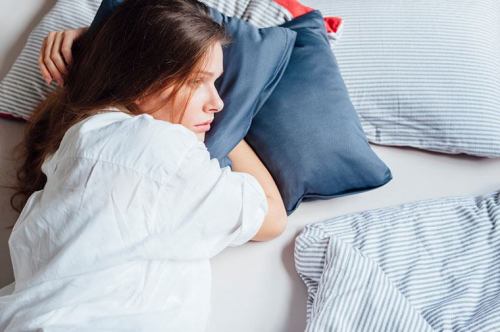Does sleep deprivation lead to depression and anxiety?
A new study found a relationship between being enduring regular sleep disruptions and being susceptible to rumination and negativity.

There are basically no upsides to not getting enough sleep. Sure, you finished all of Stranger Things before spoilers ruined it for you, but at what cost? Aside from literally killing your dreams and making you feel delirious and nearly drunk at work the next day, new study results published in the Journal of Behavior Therapy and Experimental Psychiatry claim that sleep deprivation might also be associated with depression and anxiety.
While it’s nearly impossible to be completely immune to negative thoughts, according to professor and study co-author, Meredith E. Coles, PhD, the study participants who endured regular sleep disruptions had trouble shifting their thoughts away from negativity. “People in this study have some tendencies to have thoughts get stuck in their heads, and their elevated negative thinking makes it difficult for them to disengage with the negative stimuli that we exposed them to.”
Stewing in negativity is not only a downer, but as Dr. Coles point out, it can lead to, exacerbate, or worsen mental-health conditions, including depression and anxiety.
But even still, this doesn’t exactly spell out deep sleep as the answer to depression or anxiety. Although the researchers were able to isolate certain associations, it’s hardly a chicken-or-the-egg situation, and additional information is needed.
Still, it probably wouldn’t be the worst thing to get in a solid eight hours of shut-eye.
To improve your sleep quality, try taking a magnesium supplement or consider getting on a consistent schedule.
Sign Up for Our Daily Newsletter
Get all the latest in wellness, trends, food, fitness, beauty, and more delivered right to your inbox.
Got it, you've been added to our email list.










